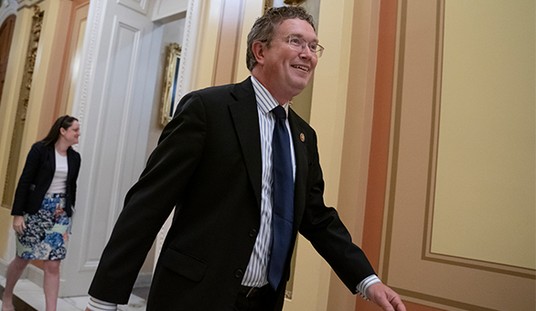The Supreme Court’s recent decision to limit the use of universal injunctions is a true game-changer—it’s hard to overstate just how much this will benefit President Trump’s second term. After years of watching district court judges grind his policies to a halt with the stroke of a pen, Trump finally has a path forward where executive action is no longer held hostage by rogue judges operating far outside their constitutional bounds.
This decision is more than a legal technicality—it’s a structural correction that strengthens the presidency and restores a semblance of balance to the separation of powers. During his first term, Trump repeatedly saw his agenda derailed by a single judge issuing nationwide injunctions that blocked policies on immigration, trade, energy, and more. Even though his actions were well within the executive’s constitutional authority, activists in robes routinely elevated their own political preferences above the will of the voters.
In an interview this week with Fox News’s Maria Bartiromo, Trump addressed the implications of the ruling in plain terms. When asked whether the decision might impact ongoing litigation over tariffs, he pointed to the broader principle at stake. “We had some radical left judge, and then we got it overturned,” Trump said, describing the legal obstacles he faced. “If some judge said we can’t do tariffs, we would fall prey to the rest of the world, who would do tariffs and are doing tariffs on us.”
ICYMI: WATCH: Scott Jennings Humiliates CNN Contributor On Air
The example is not hypothetical. Trump’s efforts to level the playing field on trade have been under attack, ignoring the fact that tariffs are a fundamental tool of executive authority in trade negotiations. The idea that a single federal judge could unilaterally declare such actions invalid on a nationwide scale posed not only a legal problem, but a national security threat. As Trump noted, “If we couldn’t fight them back with tariffs, this country would be in terrible shape.”
The Supreme Court’s ruling on universal injunctions helps to fix this. No longer can one judge in one district court issue sweeping national rulings that freeze executive policy. This changes everything for Trump’s second term. Without the constant threat of legal sabotage from the judiciary, his administration will have the ability to implement key reforms without delays engineered by partisan litigators and ideological judges.
It also brings long-overdue accountability back to the judiciary. By limiting the scope of their rulings, judges are forced to stay within the proper bounds of their jurisdiction and stop acting as nationwide policymakers. That’s how the system was designed to work—three coequal branches of government, not a judicial monarchy where unelected lawyers dictate national policy from the bench.
Trump made it clear that the decision wasn’t just a personal or political win, but a constitutional correction. “Fairness is also a part of the law,” he said. And he’s right. What the Court has done is restore fairness—fairness to the executive branch, to the legislative process, and most importantly, to the American people who vote for presidents to lead.
.@POTUS: "If some judge said we can't do tariffs, we would fall prey to the rest of the world who would do tariffs, and are doing tariffs, on us ... This country would be in terrible shape. We would be like this innocent lamb being led to slaughter." pic.twitter.com/sM7KJ7mGsN
— Rapid Response 47 (@RapidResponse47) June 29, 2025
Moving forward, Trump’s executive authority is no longer at the mercy of a rogue judiciary. His second term is already shaping up to be more effective, more resilient, and more focused—because this time, activist judges won’t have a blank check to obstruct the presidency. That alone is a major victory for the rule of law.










